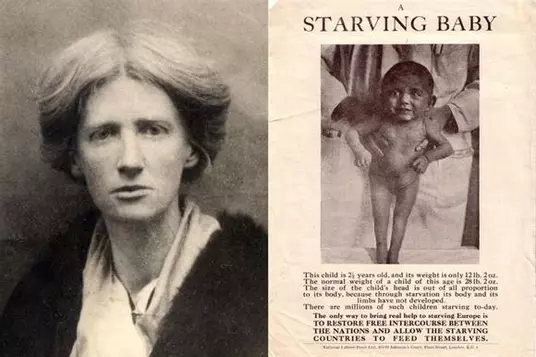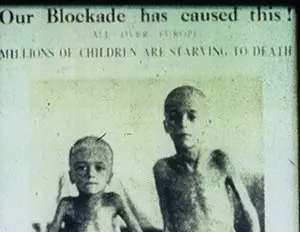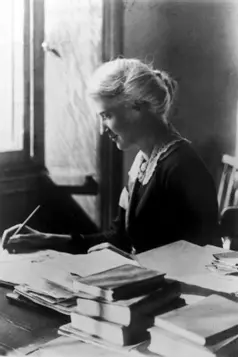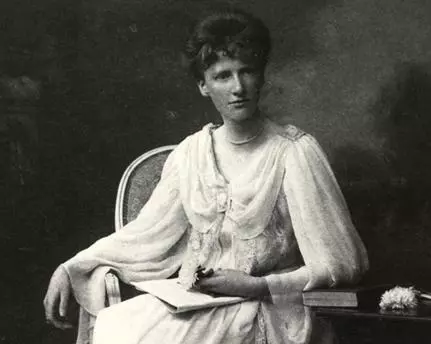Eglantyne Jebb
founder of save the children
Born in Shropshire on the 25th August, 1876, to Arthur and Tye, Eglantyne Jebb was the middle child of six in the family. A name you would remember really, if ever you stumbled upon it; but do you know who she was?
Eglantyne Jebb was the fourth child of Arthur Trevor Jebb and Eglantyne Louisa Jebb, known to all as 'Tye.' Born during the reign of Queen Victoria, Eglantyne was brought up in a very loving environment by her mother Tye and her Aunt Bun (her father's youngest sister), who provided both moral code and conduct, in a household that was very busy and active. Alongside the children's schooling, the siblings were found to be gathering bugs, feeding the hens, searching for fossils or fishing. With a healthy curiosity for their world and encouraged to have the confidence to trust their own judgements, the children experienced a plethora of hands-on experiences. In the family home in The Lyth, Ellesmere, Shropshire, a spare bedroom was converted into a workshop where the children were introduced to carpentry, wood and metal work, glass cutting and glazing and were taught how to make boomerangs, kites, popguns, bows and arrows, fishing nets and even learnt how to melt lead and cast into pellets, over the bedroom fire...
After World War I, malnutrition and rickets were rife in children throughout Europe, in particular in cities like Berlin and Vienna, where children were literally starving to death. Although not a naturally maternal woman, Eglantyne was appalled at the poor humanitarianism throughout the World and openly confessed that children were, 'little wretches...' and the 'dreadful idea of closer acquaintance never entered my mind.' She once remarked how, 'I don't care for children...,' when in fact Eglantyne spent the rest of her life striving to 'give life' to children from a distance and at the end of WWI set up the Save The Children Fund.
In 1919 Eglantyne was arrested in Trafalgar Square for causing a ruckus, by handing out leaflets showing photographs of starving Austrian children. As she hadn't got Government backing to do this, she was tried and represented herself in court. She was fined £5 and after the court was out, the crown prosecutor, Sir Archibald Bodkin, openly placed a £5 note in Eglantyne's hand. Although found guilty, legally she had lost, but morally Eglantyne had won. This £5 represented the first donation towards the Save The Children Fund...
Eglantyne's drive didn't come from any maternal instinct or concern for individual children; what powered her, was her compassion for that which had been done to young individuals that, through no fault of their own and alone, they could do nothing about their present situation. She rightly saw that all children throughout the World, were the next generation and it was them who had been physically and psychologically damaged through the war years. The emotive appeal of children, was Eglantyne's way to promote her fundraising and she often used a quote from the eminent writer of the era, George Bernard Shaw, who stated that, 'I have no enemies under the age of 7.'
Sitting atop Mount Saleve in Geneva, Switzerland, in 1922, Eglantyne had climbed to the top to clear her brain. Once there, with the wind blowing through her hair and clearing the cobwebs from her mind, she drafted the pioneering statement of children's human rights. Being well ahead of her time, Eglantyne simply wanted the rights and welfare of all children to be something that everyone took responsibility for. She set up the 'Declaration of the Rights of the Child' which in turn was adopted by The League of Nations, a forerunner to the United Nations, which subsequently inspired today's United Nations, 'Convention on the Rights of the Child.'
https://www.unicef.org.uk/what-we-do/un-convention-child-rights/
Working closely with her sister, Dorothy Buxton, Eglantyne knew that publicity, although good and spreading the word, wasn't enough to save the starving children of the World. It was money, and money alone that was required across all Nations, to save all children. The first fund from the Save The Children Fund coffers were enough to afford a herd of dairy cows to provide a source of nutrition to the malnourished children of Vienna...









